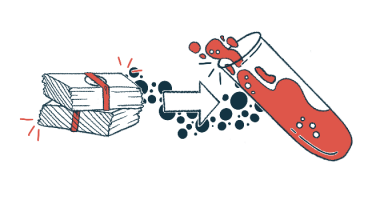New Partnership to Test Promising Therapies for CMT4B1

Lipik Stock Media/Shutterstock
The CMT Research Foundation has teamed up with AcuraStem and scientist Alessandra Bolino, PhD, to test potential new therapies for Charcot-Marie-Tooth disease type 4B1 (CMT4B1), a severe form of the disease with early onset.
CMT4B1 is caused by mutations in the gene MTMR2, which is involved in the production of the myelin sheath — the protective layer of nerve fibers — by breaking down a fatty molecule called PI(3,5)P2.
Mutations in MTMR2 lead to accumulation of this molecule, which affects the normal shape of the myelin sheath, causing it to produce abnormal structures called outfoldings. These outfoldings impair the normal function of nerve cells, ultimately leading to their death.
The production of this fatty molecule is mediated by the PIKfyve enzyme. Previous research from Bolino’s lab at Ospedale San Raffaele, in Milan, Italy, showed that treatment with a PIKfyve inhibitor, called apilimod, prevented the formation of the myelin outfoldings.
However, apilimod is short-lived and eliminated rapidly, making it unsuitable as a treatment candidate.
Scientists at AcuraStem have developed a set of new PIKfyve inhibitors tweaked to be active longer in the body. Now, researchers at the Bolino lab will test the most promising of these PIKfyve inhibitors.
“After laying the scientific foundation for this kind of drug testing in CMT4B1, it is fantastic to be able to work with a drug candidate that is this promising,” Bolino said in a statement provided to Charcot-Marie-Tooth News.
The project, expected to take approximately two years to complete, will first assess whether the molecules actually target the PIKfyve enzyme, reduce the amount of PI(3,5)P2, and prevent myelin outfoldings. To answer this, scientists will use lab-grown cells and rodent models.
In a second step, they will determine the inhibitors’ effectiveness in preventing CMT4B1-like disease in animals engineered to lack a working version of the MTMR2 gene. Animals will be treated daily with a PIKfyve inhibitor or a placebo, starting at three weeks of age and maintained until the animals reach five months, a period that roughly corresponds to early childhood to adulthood in humans.
Nerve function and structure will be evaluated as efficacy measures.
“We are pleased that Dr. Bolino will be testing our new compound in her CMT4B1 models,” said Sam Alworth, CEO of AcuraStem. “We are hopeful that our drug candidate can prevent kids with the mutations that can cause it from ever experiencing the devastation of CMT4B1.”
The outcomes of this project, if positive, are likely to benefit patients with other forms of CMT also characterized by myelin outfoldings. These include CMT4B2, CMT4B3, CMT4C, and CMT4H.
“At the CMT Research Foundation we are committed to ending CMT for everyone affected, from those with the commonest forms — such as CMT1A, CMTX, CMT1B, and CMT2A — to those with ultrarare forms,” said Keith Fargo, PhD, the foundation’s chief scientific officer.
“We will not rest until there are effective treatments and cures available for everyone with any form of the disease,” he added.





